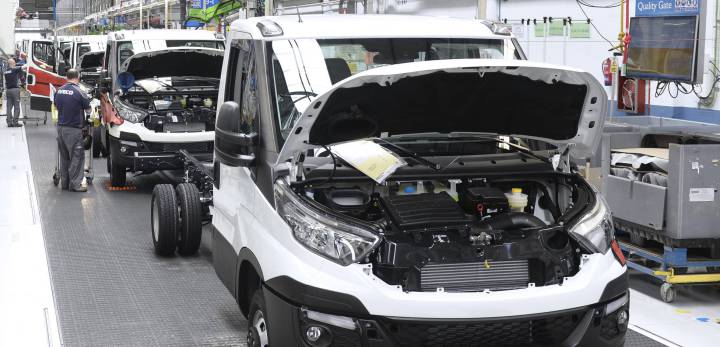The growth of the activity of companies in the euro zone accelerated significantly in February, as reflected by the increase in the Purchasing Managers’ Index (PMI), which reached the highest of the last five months, mainly due to to the relaxation of the restrictions approved by the Covid-19 and despite the fact that the prices charged to consumers registered the largest increase in the historical series, according to IHS Markit.
Specifically, the composite PMI for the euro zone reached 55.8 points in February from 52.3 in January, its best reading in five months, including an improvement in the services sector PMI to 55.8 points, compared to to 51.1 in January, a three-month high, while the manufacturing PMI has corrected to 58.4 integers from 58.7 in the previous month.
The acceleration recorded in the second month of the year comes after two months (December and January) of “moderate” expansion as a result of measures aimed at curbing infections by omicron, which helps boost future expectations, new orders and job creation as well.
The “reopening” of the economy had a positive impact on demand and new orders increased in February at their fastest rate since August, according to the document, which is based on the responses collected in a panel involving more than 5,000 companies in the eurozone. .
“The combination of rising demand, easing of Covid-19 containment measures, and easing of supply issues helped drive expectations for future activity to their highest since June last year, with more optimism recorded both in the manufacturing sector as well as in the services sector”, they have detailed from Markit.
By sectors, the improvement in services stands out thanks to the recovery of travel, tourism and trade. For its part, manufacturing production expanded, although more moderately than the previous month, thanks to the fact that the “bottlenecks” and supply supply problems are attenuating.
However, while easing supply delays helped reduce raw material cost inflation, persistent cost pressures related to higher wages and higher energy prices fueled the largest increase in average prices charged in the history of the PMI study.
“The strength of the recovery in total activity signaled by the PMI index offers welcome evidence that the economy has so far shown encouraging resilience in the face of the omicron wave, but intensifying inflationary pressures will increase speculation that the ECB will take an increasingly tough stance,” said Chris Williamson, chief economist at IHS Markit.

